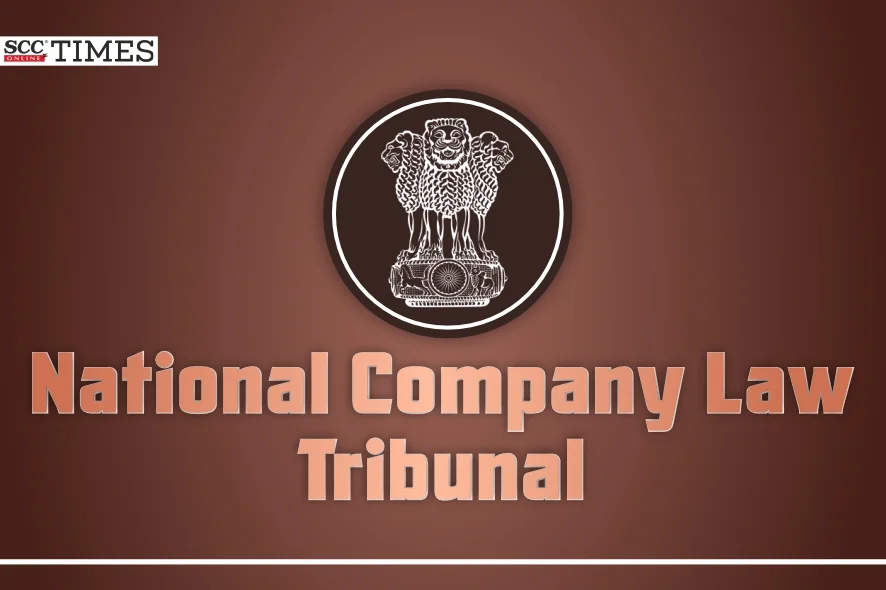National Company Law Tribunal, Mumbai: In an application filed by the applicant, Bank of Baroda under Section 60(5) of the Insolvency and Bankruptcy Code, 2016 (IBC) challenged the admission of claims of Respondent 2 and 3 (Axis Bank and NKGSB Bank) as secured financial creditor, a Division bench of Anil Raj Chellan* (Technical Member) and Kuldip Kumar Kareer (Judicial Member), held that Axis Bank and NKGSB Bank were correctly classified as secured creditors despite the absence of an NOC from Bank of Baroda. The NCLT also acknowledged that Bank of Baroda’s charge had priority, and in the event of asset liquidation, Bank of Baroda’s claim would take precedence.
Brief Facts
In the instant matter, the Omkar Speciality Chemicals Limited (Corporate Debtor) availed credit facilities from the applicant bank in 2009 and 2015, which were exclusively secured by multiple assets. Subsequently, Respondent Nos. 2 and 3 also extended financial assistance to the Corporate Debtor in 2016 and 2017, respectively, and registered their charges with the Registrar of Companies (RoC).
The Adjudicating Authority, vide order dated 05.12.2022, initiated the Corporate Insolvency Resolution Process (CIRP) against the Corporate Debtor, and appointed an Interim Resolution Professional (IRP). The applicant bank submitted its claims to the IRP, who accepted it as a secured financial creditor for an amount of ₹290.05 crore. During the CIRP, claims from respondents 2 and 3 (Axis Bank and NKGSB Co-operative Bank) were also admitted as secured financial creditors by the IRP.
Parties’ Contentions
The applicant bank challenged the admission of claims of Respondent 2 and 3 and argued that the assets claimed by the respondents were exclusively secured in favor of the applicant bank and that no NOC (No Objection Certificate) had been obtained by the Corporate Debtor for creating the security interests in favor of respondent 2 and 3. It was argued that under Section 23 and 24 of the Contract Act, any agreement made without valid consent or containing unlawful consideration is void. The applicant bank cited precedents and claimed that without the NOC, the charges created in favor of Axis Bank and NKGSB Bank were void.
On the other hand, respondents 2 and 3 argued that their claims were validly secured as the charges were registered under the Companies Act, 2013. They contended that the absence of an NOC merely created a subservient charge, which does not invalidate their secured status. The Axis Bank further argued that the Deed of Hypothecation and personal guarantees provided by the Corporate Debtor and its promoters constituted valid security interest under Section 3(31) of the IBC. The NKGSB Bank stated that their charge was registered, and under Section 48 of the Transfer of Property Act, 1882, subsequent rights created over the same property are valid, though subject to prior rights.
However, the Resolution Professional (respondent 1) argued that the Resolution Professional is bound by the CIRP regulations and lacks adjudicatory powers. The Resolution Professional considered the claims of Axis Bank and NKGSB Bank as secured based on the registered charges. The Resolution Professional also obtained a legal opinion, which stated that determining the validity of charges was beyond its powers.
Moot Point
Whether Axis Bank and NKGSB Bank can be treated as secured creditors in the absence of a No Objection Certificate (NOC) from Bank of Baroda, which held the first charge over the assets of the Corporate Debtor?
NCLT’s Analysis
The NCLT noted that while the respondents claimed that they held valid secured interests under the Companies Act and IBC, the applicant bank argued that the absence of NOC rendered the charges void. The NCLT examined the validity of charges created in favor of Axis Bank and NKGSB Bank without the NOC from Bank of Baroda.
The NCLT acknowledged that the charges in favor of the applicant were created earlier (in 2012) and that respondent 2 and 3 registered their charges in 2016 and 2017, respectively. The NCLT held that registration of a charge under the Companies Act, 2013 is sufficient to classify a creditor as secured in insolvency proceedings, even in the absence of a NOC from an earlier charge-holder. The NCLT noted that a subservient charge does not invalidate the secured status of later creditors but is subject to prior rights created over the assets. The NCLT held that the security documents remain valid as they were not declared void by any competent authority and were duly registered in accordance with the Companies Act, 2013.
The NCLT asserted that while respondent 2 and 3’s claims were admitted as secured based on the documents and the charges registered with the RoC, their security interest would be subordinate to the applicant’s, given that no NOC was obtained. The NCLT held that the absence of an NOC did not invalidate the claims of respondents 2 and 3 as secured creditors, though their charge would be subservient to the applicant’s prior charge.
The NCLT also emphasised that the Resolution Professional has no adjudicatory powers to determine the validity of charges beyond the documents presented and the registrations made with the RoC.
NCLT’s Decision
The NCLT allowed the claims of respondent 2 and 3 as secured creditors but held that their security interests were subordinate to the applicant’s prior charge.
[Bank of Baroda v. Ajit Kumar, 2024 SCC OnLine NCLT 3583, Decided on 08-10-2024]
*Judgment by Anil Raj Chellan (Technical Member)
Advocates who appeared in this case:
Kunal Kanungo and Gaurav Jalendra, Counsel for the Applicant
Amey Hadwale and Geeta Lundwani, Counsel for the Respondent No. 1/RP
Nausher Kohli and Shivani Varade, Counsel for the Respondent No. 2
Sagar Wagle, Gisa Rasquiulla and Kashyap Sampat, Counsel for the Respondent No. 3






